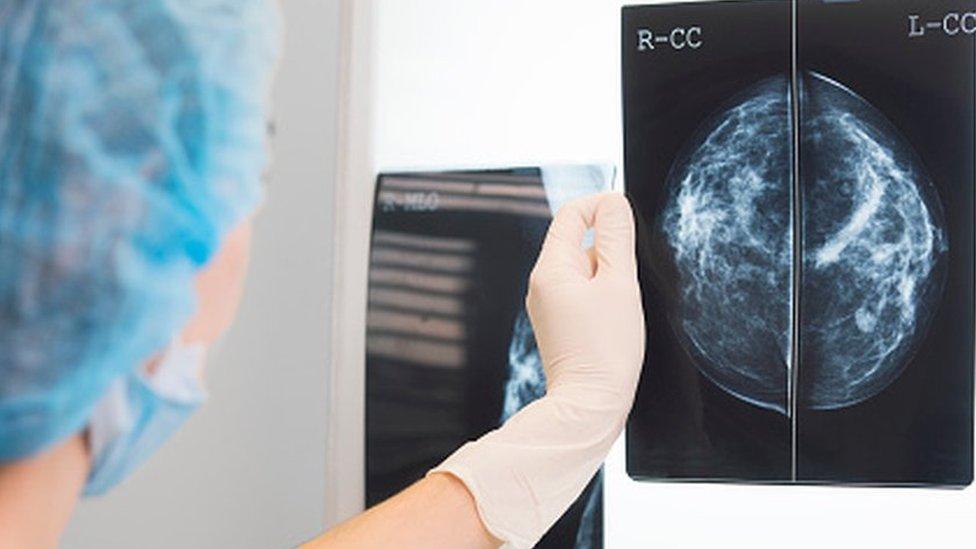Covid in Scotland: Large drop in cancer referrals during lockdown
- Published
- comments
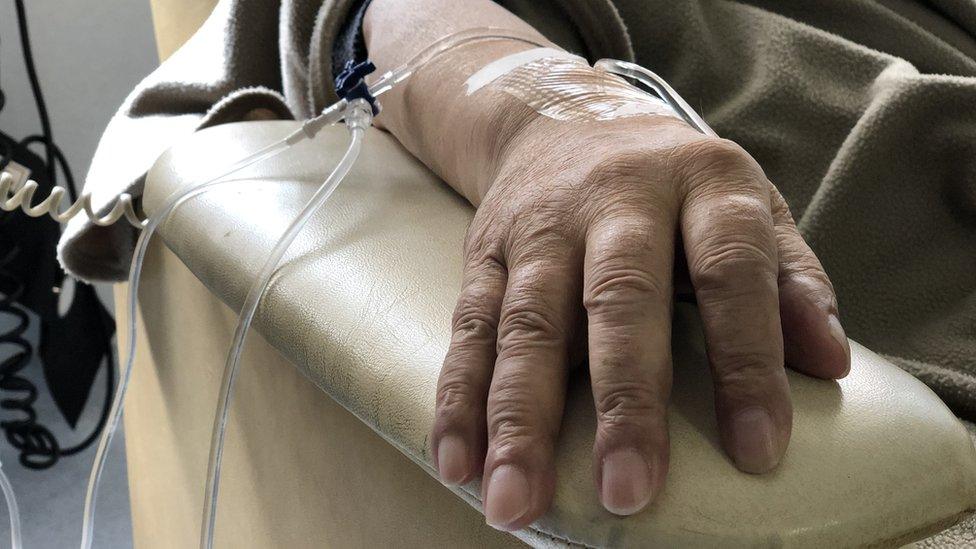
There were fewer chemotherapy and radiotherapy treatments during the pandemic
The number of people referred to see a cancer specialist dropped by a fifth during the first three months of lockdown, according to new figures.
The Public Health Scotland statistics also show a similar drop in the number of people beginning cancer treatment.
The coronavirus pandemic led to a national lockdown on 23 March and many health services were restricted.
Figures for April to June show 851 fewer people referred to specialists than the same time last year.
From early March, the three screening programmes for cancer were paused, with no new invitations sent out.
The numbers of eligible referrals for breast, cervical and colorectal cancer decreased substantially when compared with the average.

In March and April, the health service was focussed on rising numbers of coronavirus cases. That has inevitably had consequences for wider services like cancer treatment.
Screening programmes were temporarily stopped, all but urgent surgery for cancer was postponed and there were delays in patients getting diagnostic tests and/or starting treatment. Most clinical trials were suspended and in some cases, clinicians discussed changes in treatment with their patients to minimise Covid risk.
There was also a sharp drop in the number of patients going to their GP, worried about overburdening the health service, or worried about catching the virus.
Some doctors tell me services in Scotland managed to adapt quickly to ensure treatment for cancer patients was not too adversely affected, but the question is what happens in the long term?
Before coronavirus a huge amount of work and money had been spent on improving cancer outcomes in Scotland and there are real concerns that progress has stalled. Not just in diagnosis and treatment but also support for people in the community who are affected by cancer.

NHS targets
The PHS statistics show performance of the NHS against treatment targets.
The 62-day standard relates to patients urgently referred with a suspicion of cancer by a primary care clinician or from a screening programme.
The figures show the number of people referred dropped between April and June to 3,056, a decrease of 22% on the same period last year, when 851 more were referred.

Cancer screening programmes were paused during the pandemic
While referrals dropped, the percentage of patients seen within the target time (84.1%) was actually up slightly on the same period last year (82.4%).
However, for colorectal cancer only 45.9% of referrals were seen within 62 days. The Public Health Scotland report says this is likely to be because colonoscopies were paused during this period.
The 31-day standard refers to the period from the decision to treat to the start of first cancer treatment.
The latest statistics show that 14 health boards met the target of seeing 95% of patients within that target time.
'Very worrying'
They show 97.1% of patients started treatment within the 31-day standard, compared with 94.7% for quarter ending June 2019.
However, there were 5,056 eligible referrals, a decrease of 23%, or 1,526 patients, on the same period in 2019.
The report says the reduction in eligible referrals is likely to be due to a combination of patients not seeking out help and because of delays in patients having diagnostic tests because hospitals were treating Covid-19 patients.
Cancer Research UK said the latest 31-day figures showed that 1,526 fewer patients started treatment for cancer compared with the same time last year.
The charity's Marion O'Neill said: "The growing backlog of people waiting is very worrying and must be tackled as a matter of urgency. The early diagnosis of cancer can significantly improve someone's chances of survival.
"With a second wave of Covid-19 likely, everything possible must be done so patient care doesn't suffer and waiting lists don't get longer."
Health Secretary Jeane Freeman said cancer had remained a top priority throughout the pandemic, with the majority of treatments continuing.
She said: "We are continuing to ensure patients are seen and treated as safely and as quickly as possible, and if necessary, changes will be made to treatment plans to minimise risk.
"While the overall aim is to recover cancer waiting times performance, our priority remains ensuring vital services are delivered to patients based on their clinical priority and clinical risk."
Scottish Conservative health spokesman Donald Cameron branded the drop in referrals as "extremely worrying".
He said: "This is a ticking time-bomb for the health of Scottish people if it's not tackled urgently."
Scottish Labour health spokeswoman Monica Lennon said: "With the number of referrals plummeting and health boards failing to meet targets, we are running the risk of thousands of Scots receiving treatment too late and even more missing treatment all together."
- Published4 June 2020
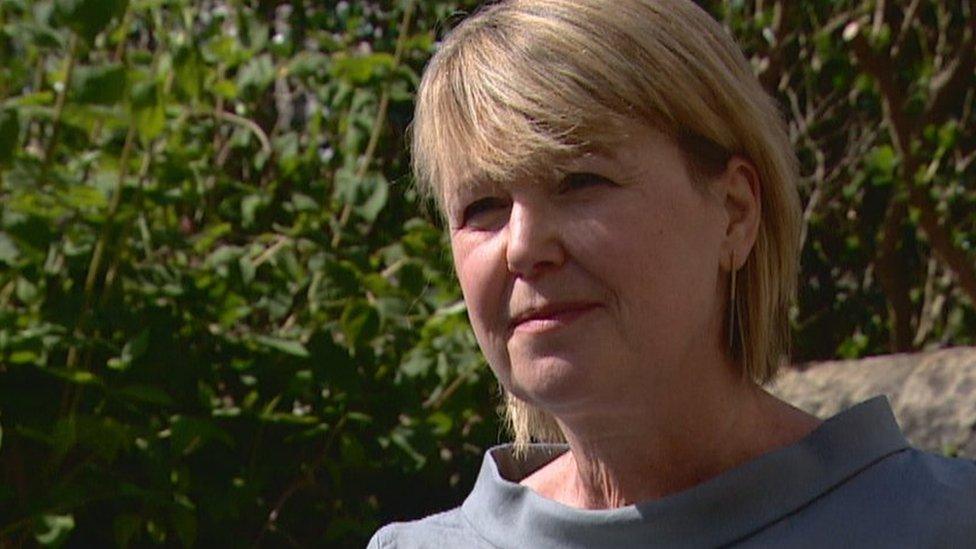
- Published12 May 2020
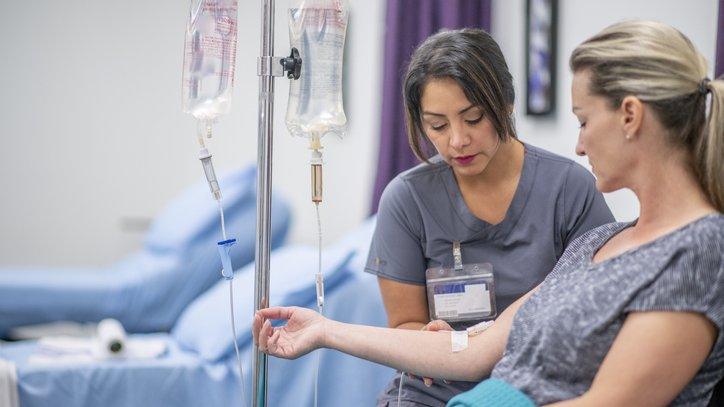
- Published23 April 2020
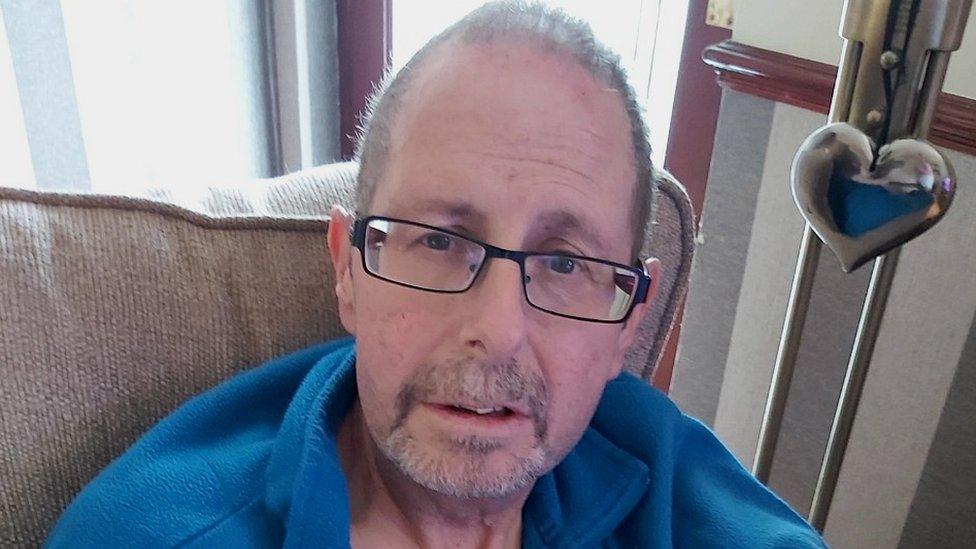
- Published23 April 2020

- Published20 April 2020
